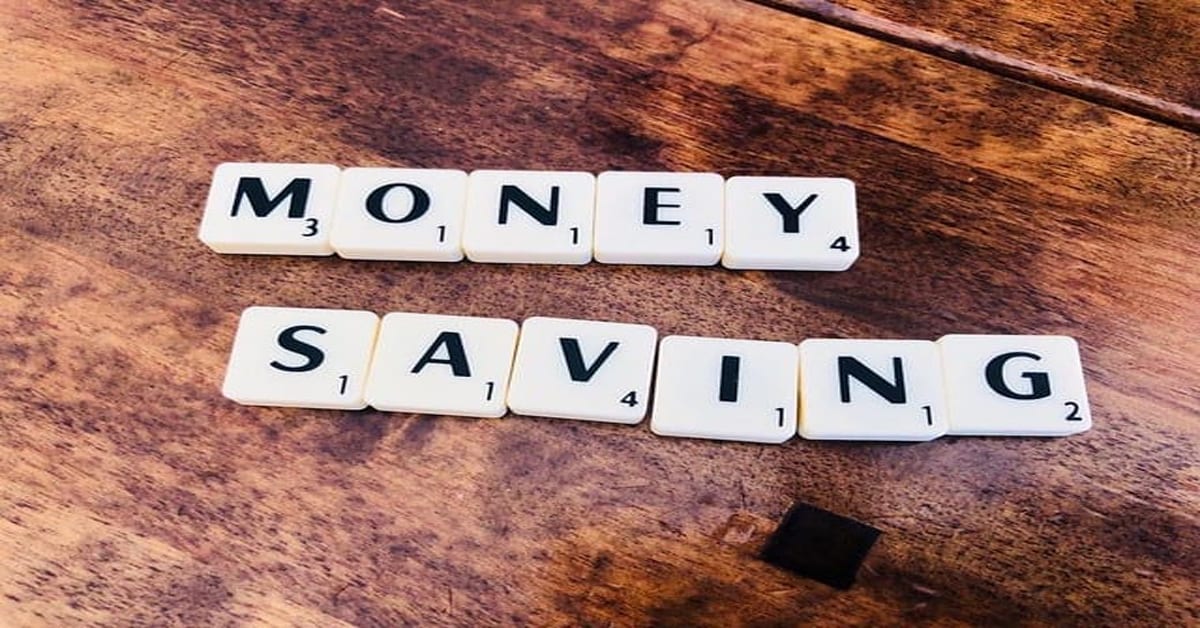Now more than ever, we need to be wise spenders and tough savers. In fact, there are many ways you can take care of your finances and the environment at the same time. If you have the will and creativity, you can save money by going zero waste.
These days when the COVID pandemic is posing health risk to everyone, people are advised to stay at home as much as possible. Maybe staying at home is not as cool as going out and seeing other places or joining the crowd. But this is (at least for now) a better choice than contracting the virus. So to avoid boredom, perhaps you are probably one of those people who turned to social media to browse for the latest information, trends and most importantly to communicate with colleagues, friends, family and loved ones.
As you keep on scrolling on the social media, one of your friends shared a post of photos showing the ugly plastic pollution worldwide. Driven by your own curiosity, you go on and search for more about it. It seems devastating. And you suddenly think of what you can do. Then, on another post, you see a post about going zero waste, tackling about how it can help to lessen plastic pollution by managing your own wastes and about saving money.
With this, you will slowly realize that going zero waste will really help you save money. To help you with this transition, I interviewed Katrina Ibalan-Tadeo, a financial planner and zero waste advocate. She discussed how saving money is easy and doable by choosing to go zero waste.
Why go zero waste?

Plastic is such a huge problem in the environment. Not only that, the way we live today, the consumerist world, it won’t last. Scientists and climate activists are telling us Earth won’t last another thousand of years if we continue the level of wastefulness in our life. If we continue throwing trash mindlessly, we won’t have a good planet to pass on to future generations.
Going zero waste or trying to live less wastefully as possible is doable. It involves eliminating the unnecessary things, looking for sustainable alternatives and maximizing the available resources you have to avoid unnecessary accumulation of things and resources that eventually end to the landfill.
And it also shows self-discipline not just on waste management but also on how oneself make a decision in financial matters, for instance, one would consider if buying bottled water can increase one’s waste and financial expenses.
Zero waste is actually a holistic approach to everything you use and to decisions you make. The goal is to be sustainable while making the best out of our wastes by diverting them from the landfill and to basically to lessen the negative environmental impact brought about by people’s practices since time immemorial which resulted to climate change and other environmental degradation that is being paid off not just by the very own present generation but also of the generations to come.
Is zero waste expensive?
Some people have the misconception that zero waste is expensive. There are also narrative that zero waste is a sign of privilege that only people with the “haves” could only afford and the poor are actually left behind. Some people think that going zero waste is about posting expensive tote bags and the likes on social media accounts. But really? Zero waste is more than the aesthetics of zero waste influencers.
In a glance, it can look like you need a lot of money to sustain such kind of lifestyle. But if you are going to scrutinize and analyze it, you will find out that being a zero waster is the opposite of it. The thought that going zero waste is expensive is actually a total myth. Because zero waste is most about saving money. Consuming less means buying less and that would result to lesser expenses on your daily budget. Consuming less has to do with how you purchase products such as buying fewer clothes, food packs with plastic packaging and the like.
Tips on Saving Money and Going Zero Waste
There a lot of ways that zero waste can help you on saving money. It will help you get more creative in going sustainable. It can actually be seen in your day to day life. Although in the beginning, it seems unusual and difficult but later on you will realize that it is possible and doable. So, let us get started.
At home
You can start saving money by having a zero waste home. This is even more relevant if you have a family. This way, you can guide your little ones and loved ones to take care of the environment while running the household on a tight budget.
Your bedroom

Declutter your closet. Check out which clothes that you can let go for swapping or sell on a garage sale.
- Repair or upcycle old clothes. Get creative and make another product such as tote bags for shopping or simply for fashion.
- Buy nothing new for at least a year and get creative with outfit combinations.
- Look at your bedroom and examine which things make it messy. Maybe you already have a lot of stuff that sprouted like mushrooms everywhere.
- Let go some of those thick blankets that you cannot use all year round together with some pillow cases that you have been keeping for so long that you almost forgot that you have them. Sell or swap them in barter groups. Or pass them on to your social circle.
Your bathroom
You can go zero waste with your bathroom by swapping your usual items for zero waste alternatives.

- Use towels instead of toilet tissue papers.

- Switch to shampoo bars which content is equivalent to 3 shampoo bottles. Shampoo bars are cheaper than liquid shampoo. Since you don’t pay for the plastic bottle it brings.

- Switch to bamboo toothbrushes. They are not only cheaper but also help the farmers who produced them. You can also make DIY mouthwash and toothpaste.

- Switch to reusable razors such as bamboo or stainless steel razors. Just like plastic toothbrushes, disposable razors are also one of the wastes that are hard to be recycled and is ending in the landfill.
So switching to more sustainable one is really an advantage than buying the disposable one. It may be expensive at first but it would last longer than the disposable one that you thought as cheaper but is actually expensive and very damaging to our environment.
Your living room

- Reuse and upcycle materials for your couches and your table clothes and buy less of materials that you use for beautification. For example, repurpose old plastic containers into something useful such as planters for an indoor garden. Just add some artsy details and it will look better for your sala.
Your kitchen

- Your kitchen has all the might in preparing food. In here, it can be seen some wastes that are accumulating such as food scraps. It is also in the kitchen that some foods are being thrown. Going zero waste can actually help address these issues.
- Compost your food scraps. And regrow some such as a stalk of cabbage and other right there in your kitchen.
- Try preserving them that would last for about a week, in this way, you can avoid food to be thrown away. This can also maximize the utilization of food and somehow lessen the impact to environment.
- Get creative with leftovers and play with meal planning. You may try creating your own recipe using your leftovers. You can turn to your meal plan that you prepare for a week to help you facilitate in preparing food.
Your laundry
Your zero waste lifestyle can help you rethink on how you do your laundry. You may start considering if you are going to use hot or cold water for your laundry as well as what type of detergent soaps you are going to use in washing them.
- Air dry your clothes under the sun. This will not only cut some expenses on your electric bill but also makes your clothes last.
Gardening

Your garden can help you to be more sustainable. You do not have to have a big space to have this; in fact, you can set up container gardening where you can grow your own food. You can place your container garden at spaces like the one in your near your windowsill, balcony and other spaces at home.
The advantage of this is not just saving money but also keeping away from harsh chemicals brought by commercialize fertilizers that are proven to cause harm to our environment. Your garden can provide you a free source of organic food and can give you happiness that makes some mental health issues at bay.
Most significantly, gardening can somehow give you a sense of food security since the Pandemic is posing problem on this.
Parenting
- Buy snacks in bulk. Cut up the plastic packaging for ecobricking. Send your recyclables to organizations that recycle them.
- If you have babies, get cloth napkins to avoid the usage of disposable diapers that usually ends to the landfill that could not be recycled.
- When feeding, you can breastfeed the baby instead of buying milk.

- Use menstrual cups instead of disposable sanitary napkins. This is not only for saving money, but also for reducing your feminine carbon footprint.
Shopping
Your practices from your closet to your garden on going zero waste will not only influence how you perceive things at home but also on how you want to manage your shopping practices.
This will put saving money at the forefront because you will learn to prioritize only your needs at home. Your consciousness is automatically telling you of what you would do since what you cannot remove that fact that whatever you bought at the market would probably end up at your home.
Purchasing products
Buy in bulk for utmost saving money. When you buy goods in the single-use packaging such as sachets, you pay a lot because you are actually paying the cost that they used in packing the food or products that we used to consume.
Instead of big chain stores, go to small zero waste stores. These zero waste stores are small businesses that aim to eliminate unnecessary packages. Mostly in these stores, saving money is easy since buyers are encouraged to bring their own containers. For instance, when you want to buy a liter of coconut oil, you probably have to bring your own bottle. These stores also offer organic products that are actually cheaper than those you can buy at the mall.
Visit your farmers’ market

One way to cut carbon footprint is buying from your local farmers market. They do not only offer fresh fruit and veggies but also offer cheaper prices. Buying from them will encourage them to farm sustainably and environmental friendly. Knowing that they use organic practices in planting those fruits and veggies, your purchase would also mean a lot to them as you can help them economically and boost their confidence to produce more organic food which is healthy not only to human but also to the environment.
Packaging

Your zero waste practices will help you utilize sustainable packaging such as using your tote bags instead of paper bags and single use plastic bag. Using your tote bag for year will save hundreds of single use plastic bags to the landfill and imagine what wonders you can make out of it! This is will also help you cut expenses of additional charges whenever you pay at the counter. What is good about this is that there are establishments that offer discounts whenever you use your own reusable bags. This is one way of encouragement that business establishments are doing to make their customers practice sustainable shopping.

Another is bringing your own reusable tumbler with you. This helps in saving money from refusing bottled water, a common conveniece that will not only add up to your expenses but also to your waste production.
Buy only what you need
Very few people realize that you you can do a lot of saving money in sustainable living. Sustainable living goes hand in hand with minimalism. Since you are more mindful of what you consume and what you throw away, you learn to train yourself to think if you really need that item. For example, those knick knacks or little trinkets or novelty items – do you really need them? Yes, they are cute but do you need them in the future? You’ll just worry about how to dispose them in the future. Just thinking about this is a good way of saving money because you practice prioritization.
Another thing: don’t buy milk tea or coffee when you don’t have your tumbler. If you don’t need it, why buy it?
Whatever you choose to buy, get only what you need. Consider the quality over quantity. While you may get a cheap thing, if it doesn’t last as long as you need it, it isn’t sustainable. And it will only get to spend more money – money that will better serve your other needs. The bottom line is that one must make sure that whatever you buy, you have to go over its quality rather than its quantity by looking at what is it made off, how long it will last and how sustainable it can be.
You don’t need to buy a lot of things, when you can reuse what you have and choose only to get what you need.
Financial Planning
Aside from taking care of the environment, it is necessary to think of your own finances in the process. Especially if you’re a breadwinner, you need to have a financial plan. It’s really good to prepare for the things that might happen that might deplete your savings.

First and foremost, you need to have an emergency fund. This is so significant, especially in this pandemic.
Next, you need to prepare for health expenses through insurance and HMOs. This will help going to the hospital less stressful if you have set aside money to cover any medical emergencies, including COVID, in your family.
Last but not the least, stick to a budget. Trim down your expenses to mostly your needs and less of the wants. Even on a tight budget, go zero waste by setting priorities. Don’t be careless in buying stuff. Simply put, be mindful in how you live and how you spend.
About Katrina Ibalan-Tadeo

Katrina is a mom, a teacher, a financial consultant with Pru Life UK, an entrepreneur and an environmental advocate. She mostly promotes her advocacy through her page, which is Green Concepts. She creates content to try to influence others to care more for the environment by providing them sustainable and practical solutions. This includes tips on saving money. She also organizes tree planting and tree nurturing activities. She actively supports Greenpeace, an independent, environmental organization.




